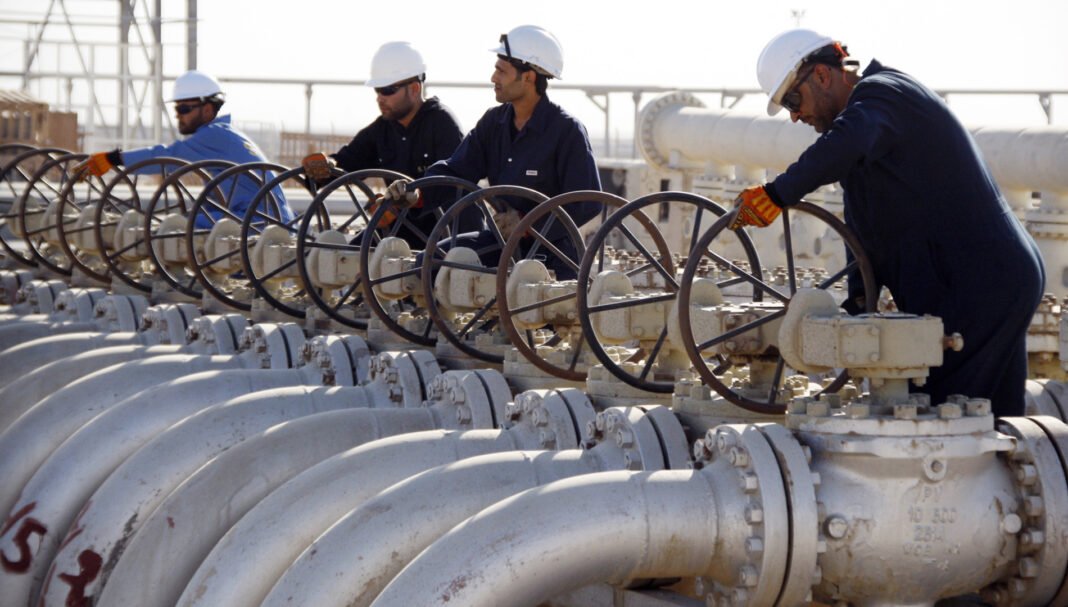Iraq’s Basrah crude oil prices inched higher even as global oil benchmarks fell. Basrah Heavy crude gained 3 cents, reaching $59.62 per barrel. Similarly, Basrah Medium crude increased 3 cents to $60.77 per barrel.
In contrast, global oil markets faced downward pressure. Brent crude futures declined 17 cents, or 0.28%, settling at $60.84 per barrel. Meanwhile, West Texas Intermediate (WTI) futures for U.S. crude dropped 0.52%, closing at $57.22 per barrel. Analysts cited concerns over oversupply and weakening demand as key factors behind the global decline.
Market observers noted that the divergence between Basrah crude and international benchmarks reflects Iraq’s strong production stability and sustained local demand. Basrah crude remains attractive to buyers due to its consistent quality and strategic supply agreements with Asian and European markets.
The oil prices inched higher in Basrah comes amid broader global uncertainty. Tensions between major oil consumers, coupled with expectations of additional output from OPEC+ countries, have weighed on international prices. Nevertheless, Iraq’s southern oil fields have maintained steady production, helping support local price levels despite global fluctuations.
Additionally, traders point out that Basrah crudes benefit from long-term contracts with refiners, which shield them partially from short-term global price swings. The combination of high-quality crude and secure supply channels has strengthened Iraq’s position in the competitive international oil market.
Economists also emphasize that local geopolitical stability in Basrah and surrounding regions supports uninterrupted oil flow, contrasting with volatility seen in other oil-producing areas. This consistency further explains why Basrah prices have risen slightly while global crude benchmarks declined.
As global markets continue to navigate supply-demand imbalances, Basrah crude remains resilient. Analysts predict that Iraq’s southern crudes will likely maintain competitive pricing, offering stability to both exporters and buyers.
Overall, the modest rise in Basrah crude prices highlights Iraq’s ability to sustain production and supply contracts even when global oil prices trend downward. Local factors, including production stability, strategic exports, and contract security, continue to support the southern oil market in uncertain global conditions.


